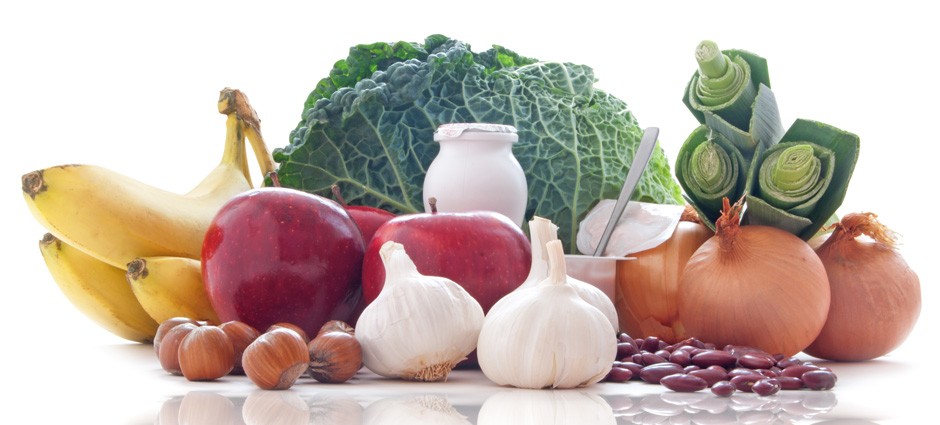Chances are you’ve heard about the health benefits of adding probiotics to your diet. Over the past decade, scientific research has shown that having the right balance of microbes in our intestinal tracts promotes improved immunity, healthy weight management and even supports brain function.
What isn’t talked about as often is the role of prebiotics, which are also essential for gut health.
Prebiotics feed the healthy bacteria (probiotics) that live in our intestines. Foods naturally rich in prebiotics are high in soluble fiber and include bananas, onions, Jerusalem artichokes and asparagus. These foods work together with probiotics to reduce gut inflammation and strengthen the immune system.
Experts recommend adding these fiber-rich foods to your diet. Since our diets aren’t perfect all of the time, consider taking a prebiotic supplement along with your daily probiotic. Some probiotics contain both (these are called synbiotics).
Here’s what to look for:
Fructo-oligosaccharides (FOS’s)
Fructo-oligosaccharides (FOS’s) are prebiotics commonly used in supplement formulations. FOS’s are plant sugars (carbohydrates) that are naturally found in fruits and vegetables.
Some prebiotics contain a combination of these plant-sugar based carbohydrates to feed your gut flora.
If you prefer your prebiotic in tablet form, try: Source Naturals FOS Tablets
For a powerful probiotic with added FOS, try: Jarrow Formulas Jarro-Dophilus® plus FOS
Inulin
Inulin is a type of FOS available in powder form that easily mixes into water, juice or smoothies.
Try: Jarrow Formulas Inulin FOS
For a probiotic with added inulin, try: NOW Foods Probiotic-10 + Inulin
While there is no official recommended dose for prebiotics, studies support doses of 4 to 10 grams of FOS’s per day to increase the amount of healthy gut bacteria.
To reduce side effects such as mild abdominal pain, bloating and gas, never take more than the product label recommends.
Other tips to keep your digestive system in check:
- Get regular exercise
- Manage stress
- Don’t rush meals – take time to chew slowly and enjoy your food


